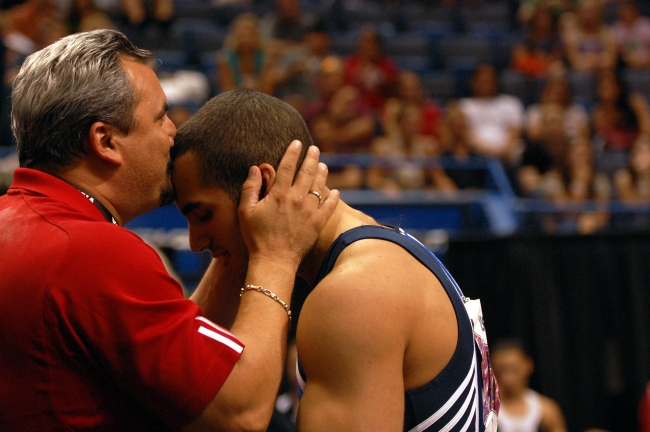Tags
What Makes a Master Coach?

Photo: Laura Stone / Shutterstock.com
In the education community, they use the concept of the master teacher to differentiate someone who has mastered the fundamentals of teaching, going above and beyond to provide an exemplary environment for their students and who are capable to teach other teachers how to perform at higher levels. Master teachers possess impressive content knowledge to be sure—they know their subjects well. But what sets a master teacher apart from a great teacher are certain traits.
To be a good coach requires technical understanding and coaching experience that will take thousands of hours of attending practices and clinics, reading articles and watching videos to amass. But it will take more than that to be a master coach. For knowing your subject is not enough to be a master coach, you need certain traits as well.
So what are the traits that a master coach?
Here are my top ten:
- Connects with kids. Beyond liking and understanding kids, master coaches connect with each child they coach. By connecting with their athlete, they are best able to understand their children’s individual personalities, fears, motivations, hopes and dreams as well as provide a safe learning environment for their athletes.
- Makes the curriculum work for the kids, not the kids for the curriculum. A master coach coaches the child first and the sport second. While certain progressions must be followed for safety, a master coach is flexible in how those progressions are reached based on the individual needs and differences of the athletes.
- Is passionate about: teaching itself, what they teach, where they teach and to whom they are teaching. Like the four legs of a table, commitment to the craft, the sport, the club and the kids form the stable base upon which a master teacher builds his or her practice.
- Is a life long learner and a open teacher. A master coach never stops learning and is humble enough to know that there is something to be learned from other coaches, even those with less experience then they have. Furthermore, a master coach doesn’t guard their “secret sauce,” instead is willing to share ideas and techniques for the good of the sport and all the athletes’.
- Focuses on learning goals instead of performance goals and instills this in his/her athletes too. A performance goal is a goal that is about looking good (i.e. scoring a 38AA or qualifying to nationals) whereas a learning goal is a goal about increasing your competence, commitment or consistency (i.e. learning a double back, having 95% attendance at practice or going 4/4 at a meet). While performance goals in and of themselves are not bad, because they rely on external validation they shift the responsibility away from the athlete and can cause the athlete to feel helpless in the face of failure because ultimately they cannot control the outcome. With learning goals, the athlete retains the control of the accountability of the goal and therefore, when confronted with failure can actually respond by putting in more effort.
- Helps their athletes see connections in their learning. Master coaches help their kids see how things like basics, ballet, flexibility, drills and conditioning help their gymnastics. By providing the “why” they inspire their athletes to work harder toward their goals.
- Uses opportunities to teach life lessons. Master coaches know that their athletes’ time in the sport will eventually come to an end, but the life lessons learned can serve them well after they perform their last routine. So master coaches teach gymnastics and build character.
- Works with parents for the benefit of the gymnast. Master coaches are not threatened by parents, instead choosing to see parents as partners not enemies. Master coaches communicate effectively and openly with parents.
- Spends time reflecting on how to do better. Never satisfied with good enough, a master coach is constantly thinking of ways to improve him/herself, the design of the workout, the layout of the gym, the selection of skills, and anything and everything else. A master coach’s ego is not built on the backs of the athletes’ but instead on knowing that he/she is continually improving for the benefit of the athletes’.
- Places the health and well being of the gymnast ahead of the sport. Master coaches know that the child is the more important than the athlete and makes all choices accordingly.
How many traits do you have? Are there any you’d take off this list? Any you’d add?
The truth is, each of us can have a slightly different list of what a master coach looks like, but the essence is this: someone who teaches life skills along with sports skills, who places the well-being of the child at the center and is constantly improving.


Wow! Such a great template for new and old coaches to aspire to.
Mom of a competitive gymnast for 20 years
LikeLike
thank you Jane!
LikeLike
Pingback: What Makes a Master Coach? | JAG GYM Blog – Recreational Gymnastics Pros
Pingback: The PE Playbook – March 2016 Edition – drowningintheshallow